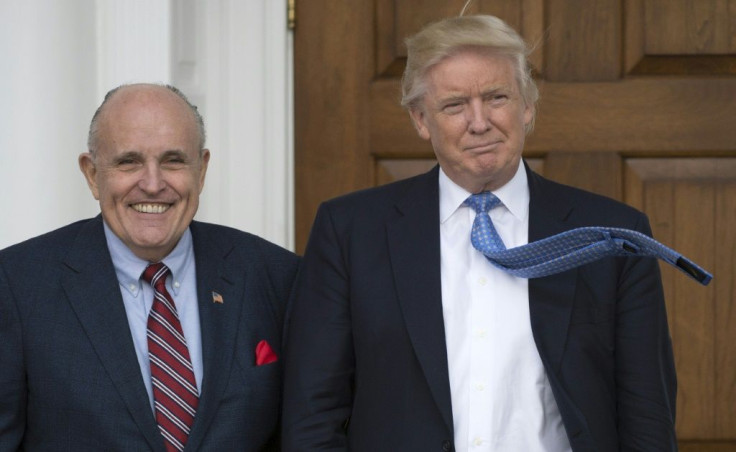Trump, Giuliani Sued By Congressman For Conspiring To Incite Capitol Insurrection
Donald Trump faces yet another legal battle.
Rep. Bennie Thompson, a Mississippi Democrat, filed a lawsuit in Washington, D.C., federal court accusing the former president and others of conspiring to incite the Jan. 6 insurrection at the Capitol.
Thompson, chairman of the House Homeland Security Committee, filed the suit against Trump, his attorney Rudy Giuliani, the Proud Boys and Oath Keepers. The defendants allegedly violated the Ku Klux Klan Act. The NAACP joined in the lawsuit.
The act, passed in 1871, prohibits actions aimed at preventing Congress from carrying out its duties. The Jan. 6 mob that descended on the Capitol was attempting to stop certification of Electoral College results declaring Joe Biden winner of November's presidential election.
Thompson's suit claims Trump, Giuliani and the two right-wing extremist groups named executed a carefully orchestrated plan to intimidate, harass and threaten to stop the certification.
"The Defendants each intended to prevent, and ultimately delayed, members of Congress from discharging their duty commanded by the United States Constitution to approve the results of the Electoral College in order to elect the next President and Vice President of the United States," the lawsuit said. "Pursuing a purpose shared by Defendants Trump and Giuliani as well as Defendant Proud Boys, Defendant Oath Keepers played a leadership role in the riotous crowd and provided military-style assistance sufficient to overcome any Capitol Police resistance."
Trump was acquitted Saturday on an article of impeachment alleging an incitement of insurrection. Trump is the first president to be impeached twice. He was acquitted on Feb. 5, 2020, in his first impeachment trial and became the first impeached president to stand for re-election.
In the first impeachment, the Senate voted 53-47 against convicting Trump, with Sen. Mitt Romney of Utah the only Republican to vote to convict. Saturday's vote was 57-43 in favor of conviction, with seven Republicans voting against Trump, but that was far short of the two-thirds majority necessary to acquit.
The civil lawsuit seeks unspecified compensatory and punitive damages and sues Trump as an individual, claiming he acted outside the scope of his office when inciting the rioters. As a civil proceeding, plaintiffs have to prove responsibility by a preponderance of the evidence and not the criminal trial standard of proof beyond a reasonable doubt.

© Copyright IBTimes 2025. All rights reserved.





















